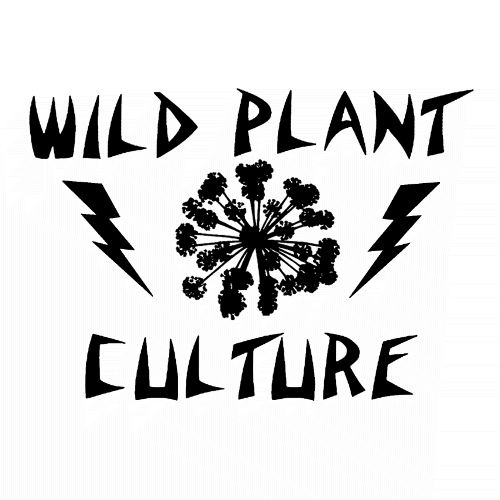Nursery Plants Without Chemical Poisons

Spicebush swallowtail caterpillar on our nursery plants
Apparently, we oughtn't say that we grow our plants organically because we're not certified.
However, we exclusively use an organic (and peat-free) potting soil; no herbicides or fungicides, and only organic fertilizer in our nursery. The only pesticide we use is an organic-certified slug bait [1].
You can decide for yourself if we qualify.
I believe that using organic fertilizers and living soil produces much healthier and more resilient nursery plants. Our plants begin developing crucial fungal and bacterial soil associations that will serve them well when transplanted into real terra firma.
Conventionally grown nursery stock, constantly juiced up with nitrogen and plentiful irrigation water, grows huge but must encounter quite a shock when planted on a restoration site or even in someone's yard. I believe our plants have already learned to assimilate organic nutrients in the same manner they will once planted, and have developed tough, resilient tissues rather than juiced-up parts.
Our plants have real muscles, not steroid muscles.

Our plants grow big and husky without synthetic fertilizers.
These are first-year, quart-size boneset plants... three feet high and about to flower.
* * *
Today I did my first real research on neonicotinoid insecticides. I had seen an article about the ban on their use on National Wildlife Refuges on a plant conservation list I subscribe to. These chemicals are used on agricultural crops; according to the EPA "Hundreds of millions of acres of corn, soybean, cotton and other field crops are planted annually with neonicotinoid seed treatments (NSTs)"[2]. They are also predominant on ornamental nursery stock. Over 50% of plants available at big box stores were treated with them according to a recent study. [3]
Neonics, as they are called, are systemic pesticides that infiltrate all plant tissues. That means they are even found in pollen and nectar. So, even bee-friendly plants in the best intentioned gardens may be killing bees due the neonics in pollen and nectar.
I'm still reeling from the implications of hundreds of millions of agricultural acres of potential pollinator poisons, and so many gardens and ornamental landscapes filling in where the farms leave off. Without pollinators, we have no flowering plants, and without flowering plants, we have complete ecological collapse.
And I'm finding more material about the hazards these poisons pose to songbirds, fish, and other creatures as well.
Needless to say, our nursery's native plants are neonicotinoid-free. We love finding spicebush swallowtail caterpillars, monarchs, and numerous other lepidopterans and beneficial insects on our nursery plants. Our plants are here to build ecology, welcome pollinators, and make associations with soil food webs. That's why we always grow organi... ummm, sustainably.
Non-native slugs are a problem in our nursery. I suspect they are also causing the disappearance of slow-growing, especially woodland, native species in the wild, though this is seldom discussed, compared to the exotic earthworm problem or various tree-defoliating insects. They love the choicest and rarest woodland wildflowers, like trillium, ginseng, spikenard... and seem to have a special attraction to purple milkweed.
http://www.epa.gov/pestwise/grants/2013-r3-penn-state-factsheet.html
"Last year,researchers discovered that the label "bee friendly" was a joke, with seven of 13 plants (54 percent) from big-box stores testing positive for the bee-killing neonicotinoid chemicals. You would think that with a year to clean up their acts, stores like Home Depot, Lowe's, and Walmart would make it that "bee friendly" actually means friendly to bees." according to Rodale News.
